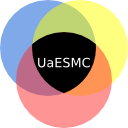News and updates about the project
-
Aug25
-
-
-
-
The second round of interviews has now been conducted, the results analysed and published in deliverable 1.4. This time five people from different sectors in Estonia were interviewed. The interviews focused on the following aspects:
- assessment of potential barriers to adoption of SMC identified in the first round of interviews;
- gathering user feedback on the statistics demo;
- further mapping of potential use contexts of SMC;
- probing the feasibility of two use case scenarios.
- Being sufficiently/insufficiently informed
- Presence of perceived need/existence of a functional substitute
- Presence/absence of task-technology fit
- Sufficient amount/lack of resources
- Good organizational fit/avoidance of uncertainty.
SMC's potential advantages and disadvantages were also assessed in relation to existing practices of data handling:- Anonymisation prior to giving data to research
- Anonymisation by research team
- Data filtering combined with anonymisation
- Keeping data and user separate
- Delegating data operations to the third party
- Limiting the research problem
- Providing a secure pathway to data
- Making data sharing obligatory by law.
Read the full results here.
-
-
-
Jan31
- In June UT participated at International Communication Association’s Annual Conference in London.
-
Sep20
During the summer months one of our project partners (KTH) investigated collaborative intrusion detection (CID) and distributed monitoring (DM) as possible application areas for SMC. Roberto from KTH gave us a short overview and explanation.
- While in a recent news item, we told about weaknesses we had found in existing transformation-based privacy-preserving linear programming methods, we can now report that based on these weaknesses, we have constructed concrete attacks against several methods.
- Optimization problems are ubiquitous in human endeavour. Hence, privacy-preserving optimization is one of central problems in UaESMC.
- On Tuesday and Wednesday (April 23 and 24) the UaESMC consortium had its annual meeting in Stockholm at KTH to discuss plans for year 2 of the project.
-
UaESMC project passes the first year with good reviews.Mar06
- It is a standard assumption in Cryptography and Security that participating parties can exhibit arbitrary adversarial behavior, by "maliciously" not cooperating along the execution of the suggested cryptographic protocol, deviating from it in the worst possible way for us, the designers of such algorithms.
- While other project partners have studied cryptographic solutions, UT has taken a different approach to the subject and focused during the first project year on the questions of science communication and technology adoption.
- UaESMC consortium has just published the deliverables reporting the progress made during the first year of the project.
- All participants are working on the deliverables that describe the results of the first year of the UaESMC project. KTH organized an internal workshop on cross-layer security.
-
-
- We are currently focusing on formalizing and investigating techniques for the problems discussed during the interviews.
-
UaESMC presents deliverable D1.2 based on 24 semi-structured interviews with experts from 6 different countries with the aim of finding usable applications for Secure Multiparty Computation (SMC). In addition, difficulties and challenges for the implementation were discussed.
- As part of WP1 we have conducted more than 24 interviews with experts from very different fields and various countries (Estonia, Belgium, Sweden, Greece, Finland).
-
This report contains a review of the current state of the art of cryptographic techniques for securemultiparty computation.
-
The Capability Model has been launched and is now available. The aim of the model is to communicate the key ideas of Secure Multiparty Computation (SMC) to parties not familiar with the concept.
-
Estonian SME Cybernetica AS is leading new research project investigating secure multiparty computation (SMC) methods within the Future Emerging Technology Open Scheme in the Seventh Framework Programme of the European Union. Objectives of the project UaESMC (Usable and Efficient Secure Multiparty Computation) are to research ways of making SMC faster, and to develop a framework that simplifies the application of SMC technologies.
- Usable and Efficient Secure Multiparty Computation project (UaESMC) has launched its public website. More information, especially about the secure multiparty computation (SMC) will soon be available. Website allows you to register for newsletter and updates of the project either through RSS feed on the right hand menu or by sending your e-mail address to the mailing list for our bi-annual newsletter.
